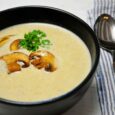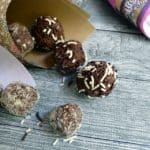Cold & Flu Season: What can you do?
There are times when everyone’s immune system needs a boost. Here are a few tips to help yours:
1. Eat Lots of Fresh Fruit & Veges
Make sure you eat plenty of colourful and leafy green vegetables and fruit that is packed with vitamin C. Eating produce that is in season, locally sourced or has been frozen has higher amounts of vitamin C than that which has been stored or cooked. Late autumn is the time to enjoy plentiful persimmon, pumpkin and citrus – all bright orange and packed with just what you need for fortification.
2. Get Your Body Moving – Outside
Going outside may be the last thing you want to do when the weather’s miserable, but exercise boosts your immune system. You may also know that your body needs sunlight to create vitamin D that’s essential for good health, but unfortunately you’ll not make appreciable amounts in the winter. Top up your vitamin D levels with cod-liver oil and oily fish such as sardines, salmon and fresh kahawai. Low levels of vitamin D is one of the factors in recurrent colds and flu. You might need an extra boost if this seems to be your pattern. See number 4 below for more about being outdoors.
3. Rest & Recuperate
Many animals hibernate over winter – not possible for us unfortunately – but it’s certainly a good time to snuggle down and catch up on missed sleep. Longer nights make this easier as the sleep-hormone (melatonin) is naturally made when you’re in the dark. Do turn off the light! If trouble sleeping is an issue for you, read more here.
4. Monitor your Mood
Lack of sunshine and daylight can have a profound effect on your emotions. For some people, this might mean low mood, irritability and lack of energy during autumn and winter. Winter depression, or seasonal affective disorder (S.A.D.) as it’s known, tends to affect more women than men. Symptoms include a lack of interest in socialising, daytime sleepiness, a craving for starchy foods and an increased need for sleep.
All our team very experienced at working with people with mood disorders – including those for whom antidepressants haven’t helped. Make an appointment here.
5. Take Good Care of Your Mouth
Increasingly, we are aware of the first port-of-call for unwanted viral visitors. Keep up with a fastidious oral hygiene regime to help cleanse early colonisers out and support your mouth’s role in keeping your lungs and gut well.
Twice daily mouthrinse with our fabulous Sage & Thyme mouthwash, followed by a Blis oral probiotic.
Think you need a bigger boost? Schedule an acute (15 min) appointment, or if getting frequent viral illness is an ongoing issue, please book an initial consult with one of the team. With a thorough overview of your health, diet, and lifestyle, and individualised support regime can be prescribed, so you don’t need to spend so much time unwell.
6. Daily Prevention
Including specific nutritional extracts can make a bit difference to how your immune system functions.
A 5mL dose of Black seed oil (Nigella sativa), taken daily, may bolster your defenses.
Medicinal mushrooms such as Reishi, Shiitake & Turkey Tail have a long history of being used to help support immune function. And the science is catching up. Use one, use them all – we can make you a blend, or make up your own.

Self-help at the First Sign of a Cold
You need:
One of two of our Heat-er-up immune-kick-starting options (see below)
A bottle of Kunzea ambigua essential oil
A supply of lypospheric vitamin C
An immune-boosting herbal formula or tablets (contact us)For sore throats:
Put about 100 mL of water in a glass jar with a lid. Add 5-8 drops of Kunzea oil. Put the lid on a shake vigorously. Gargle with this every hour or so. This has a double benefit, as Kunzea acts both as an antiseptic as well as a topical pain reliever.
For any early viral illness:
- Take a lypospheric vitamin C every 2 – 3 hours. This type of vitamin C is readily absorbed and gets your blood vitamin C levels up much higher than regular vitamin C does. An added bonus is that it will not cause a loosening of the bowels as other forms can when taken in high doses.
- Take Echinacea every 3 – 4 hours. Just how often depends on the type of Echinacea. It’s important to be aware that not all Echinacea is created equal. Contact us to get one that’s practitioner-quality and right for you.
- You might also need extra zinc. Contact us to determine if this could be of benefit to you.
What to avoid
It’s really important to support your immune system. The normal reaction of your body is to generate a fever, which activates your defenses and aids in fighting the virus. Taking anything that brings down, or prevents a fever, such as Panadol/Pamol is not in your best interests.
For pain – the kunzea oil is an effective pain reliever (for sore throats) and for headaches: increase your water intake and put a drop of peppermint oil on your temples or back of your neck (depending on where the headache is.
Heat-er-up
Option 1: swallow (whole or roughly chopped) a clove of garlic every half an hour until either you a) get a fever, or b) your stomach says ENOUGH!
Option 2: Mix 1-2 cloves of crushed garlic, a 1cm x 1cm square of ginger root (grated or crushed), a pinch of cayenne pepper, 1 tblsp of manuka honey, and the juice of a lemon. Add boiling water, stir til the honey has dissolved and drink as hot as you can. Tuck yourself in warmly and be prepared to get hot!
If you want to do some additional reading….
Influenza-like illnesses (ILI) and upper respiratory tract infections (URTI) typically peak in prevalence in the late fall through early spring. The media extol the benefits of good hygiene and immunizations, echoing the advice of healthcare professionals. In addition, home remedies and natural products have long been used to prevent and treat common viral illnesses. How should clinicians advise patients about the effectiveness and safety of these remedies when used to enhance immune function to prevent or treat virally mediated ILI or URTI?










